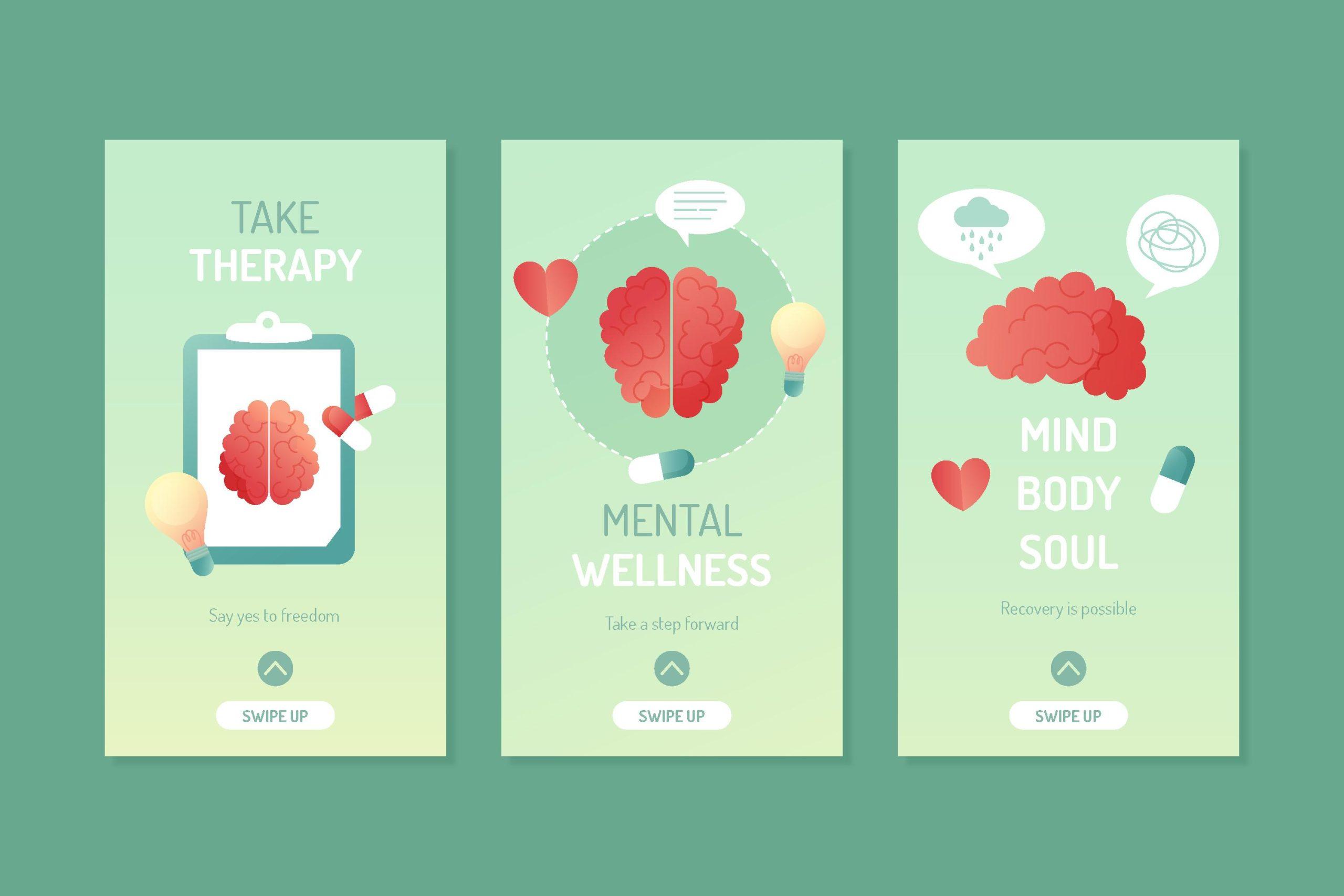In recent years, mental health has gained significant recognition as an essential aspect of overall well-being. With the increasing demand for accessible and convenient mental health support, mobile apps have emerged as powerful tools to provide guidance, resources, and therapy to individuals. This blog post serves as a comprehensive guide to developing a mental health app. We will explore the understanding of mental health apps, market statistics, top mental health apps in 2024, main features, and step-by-step development process.
Understanding Mental Health Apps
Mental health apps are mobile applications designed to support individuals in managing their emotional well-being, improving mental health, and seeking assistance when needed. These apps offer a wide range of features, including self-assessment tools, meditation and relaxation exercises, therapy sessions, mood tracking, and access to mental health professionals.
Market Statistics of Mental Health Apps
Before delving into the development process, let’s take a look at some market statistics that highlight the growth and potential of mental health apps:
- The global mental health app market is projected to reach $4.31 billion by 2027, with a CAGR of 22.3% from 2020 to 2027.
- The COVID-19 pandemic has significantly increased the demand for mental health apps, with a surge in downloads and usage during lockdowns and periods of social isolation.
- In a recent survey, 47% of respondents reported using mental health apps for stress reduction, anxiety management, and overall mental well-being.
- The most popular mental health app categories are meditation and relaxation, therapy and counseling, mood tracking, and self-help resources.
Top Mental Health Apps in 2024
While the landscape of mental health apps is continually evolving, here are some top mental health apps projected to thrive in 2024:
1. Calm
Calm offers meditation sessions, sleep stories, breathing exercises, and relaxing music to promote relaxation, reduce stress, and improve sleep quality.
2. Headspace
Headspace provides guided meditation and mindfulness exercises for stress reduction, focus improvement, and better sleep. The app also offers short meditation sessions for busy individuals.
3. Talkspace
Talkspace connects users with licensed therapists through text, audio, and video messaging. It provides convenient and confidential therapy sessions for a wide range of mental health concerns.
4. Moodpath
Moodpath is a mood tracking app that helps users monitor their emotional well-being, track symptoms, and identify patterns. It also offers personalized insights and recommendations based on the user’s mood data.
5. Sanvello
Sanvello combines cognitive-behavioral therapy (CBT) techniques with mood tracking and meditation exercises. It provides support for stress, anxiety, and depression management.
6. Woebot
Woebot is an AI-powered chatbot that uses cognitive-behavioral techniques to provide emotional support, coping strategies, and behavioral activation exercises.
7. Happify
Happify offers science-based activities and games to promote positive thinking, resilience, and emotional well-being. It focuses on building skills for stress management and happiness enhancement.
Mental Health App Main Features
To develop an effective mental health app, consider incorporating the following key features:
1. User Registration and Profile Creation
Allow users to create personalized profiles and customize their app experience. This feature enables tracking progress, setting goals, and tailoring content to individual needs.
2. Self-Assessment Tools
Include questionnaires or assessments to help users understand their mental health status, identify areas of concern, and track progress over time. You can consult the best mobile app development company to get more information on fitness apps and their other features.
3. Therapy and Counseling Services:
Integrate features that allow users to connect with licensed therapists, counselors, or mental health professionals through text, audio, or video-based sessions.
4. Meditation and Relaxation Exercises
Provide a library of guided meditation, breathing exercises, or relaxation techniques to help users manage stress, anxiety, and improve overall well-being.
5. Mood Tracking and Journaling
Incorporate features that enable users to track their moods, emotions, and daily activities. This helps identify patterns and triggers, providing valuable insights for self-reflection and therapy sessions.
6. Reminders and Notifications
Send reminders and notifications to encourage users to engage with the app regularly, practice self-care activities, and complete therapy-related tasks.
7. Resources and Educational Content
Offer a repository of articles, videos, or educational resources on mental health topics, coping strategies, and self-help techniques.
How to Develop a Mental Health App? Step-by-Step Process:
Step 1: Define the Purpose and Target Audience
Identify the specific purpose and target audience for your mental health app. Determine whether you are focusing on therapy, self-help, meditation, or a combination of these elements. A top fitness and healthcare app development company to make your fitness and healthcare application
Step 2: Conduct Market Research
Research existing mental health apps to understand their features, strengths, and weaknesses. Identify gaps in the market and explore opportunities for innovation.
Step 3: Plan and Design theUser Interface
Create a user-friendly interface that promotes easy navigation and a seamless user experience. Consider the app’s visual design, color schemes, and typography to create a soothing and calming environment.
Step 4: Choose Appropriate Technologies
Select the appropriate technologies, frameworks, and tools for app development. Consider factors such as platform compatibility (iOS, Android), database management, security, and scalability.
Step 5: Develop Core Features
Start by developing the core features of your mental health app, such as user registration, self-assessment tools, therapy/counseling services, and meditation exercises. Focus on creating a robust and reliable foundation. You can also hire mobile app developers in india for creating mobile apps.
Step 6: Implement Additional Features
Once the core features are in place, integrate additional features like mood tracking, journaling, reminders/notifications, and educational resources. Ensure these features align with your app’s purpose and target audience.
Step 7: Test and Refine
Conduct thorough testing to identify and fix any bugs, glitches, or usability issues. Gather user feedback and make necessary improvements to enhance the app’s performance and user satisfaction.
Step 8: Ensure Data Security and Privacy
Implement stringent security measures to protect user data, ensuring compliance with relevant data protection regulations such as GDPR or HIPAA. Encrypt sensitive information and implement secure authentication mechanisms.
Step 9: Launch and Market
Prepare for the app launch by creating an effective marketing strategy. Utilize various channels such as social media, app stores, and mental health communities to promote your app and reach your target audience.
Read blog: Fitness App Development: A Complete Guide
Step 10: Gather User Feedback and Iterate
Encourage users to provide feedback on their experience with the app. Continuously iterate and improve your app based on user feedback, emerging trends, and technological advancements.
Wind Up
Developing a mental health app requires careful planning, research, and a deep understanding of the target audience’s needs. By incorporating essential features, ensuring a user-friendly interface, and prioritizing security and privacy, your app can make a positive impact on individuals’ mental well-being. As the demand for mental health support continues to grow, investing in the development of a mental health app can be a rewarding endeavor, contributing to the overall improvement of global mental health. Collaborating with a best fitness app development company with expertise in creating fitness applications can further enhance the development process.
Remember, a mental health app should never replace professional therapy or counseling. It should serve as a complementary tool to support individuals in their mental health journey and provide them with accessible resources and guidance when needed.






